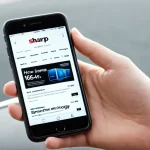Emerging trends in wearable technology for UK marketing
Wearable technology trends in the UK are evolving fast, reshaping how brands engage with consumers. Currently, marketers leverage devices like smartwatches and fitness trackers to gather real-time data on user habits, enabling personalized advertising. This direct access to continuous health metrics and location-based insights offers an innovative advantage in targeting.
New devices such as augmented reality glasses and advanced biometric sensors are gaining traction. These technologies offer immersive experiences and deeper emotional connections, moving beyond traditional wearables. For example, AR-enabled wearables facilitate interactive promotions, providing a richer brand engagement tool for UK advertising innovation.
In parallel : How can UK marketers benefit from using chatbots in customer interactions?
Looking ahead, future wearables marketing will increasingly focus on seamless integration within daily life. Predictions highlight a move towards unobtrusive, multifunctional devices that combine health tracking with social and environmental awareness signals. This intersection opens fresh avenues for tailored campaigns and real-time consumer feedback loops.
Marketers should prepare to harness these shifts by embracing data-driven strategies and prioritizing user privacy. Doing so will position them at the forefront of the UK advertising innovation landscape, making wearables a cornerstone of brand-consumer relationships.
In the same genre : How can UK marketers improve customer experience with AI chatbots?
Applications and strategic integration in UK advertising campaigns
Wearable applications in marketing are increasingly integral to UK marketing strategies, offering brands a novel way to engage consumers. These devices seamlessly integrate with digital channels, creating a multi-channel experience that enhances campaign reach and impact. For example, wearables can sync with social media and mobile apps, enabling real-time updates and personalized notifications that keep users actively engaged.
UK brands often incorporate wearables to deliver tailored content based on user activity or preferences. This personalisation strengthens consumer connections by providing relevant, timely experiences. In fitness campaigns, for instance, wearable trackers enable brands to interact dynamically with users, fostering loyalty through customised rewards or challenges.
Successful examples in the UK include campaigns where wearables were used to collect data for bespoke messaging, enhancing user interaction beyond traditional media. This strategic use of wearables complements wider digital marketing efforts, ensuring consistent messaging across platforms and elevating overall campaign effectiveness.
By harnessing wearable applications in marketing, UK advertisers can enrich user engagement, offering interactive, data-driven experiences that stand out in a crowded marketplace. This fusion with digital channels represents a forward-thinking approach in contemporary UK marketing strategies.
Benefits and advantages for marketers and consumers
Wearables provide personalization that revolutionizes marketing benefits. By collecting real-time UK consumer data, marketers gain invaluable audience insights and can segment their customers more accurately. This level of detailed data enables companies to tailor campaigns specifically for individual preferences, interests, and habits, boosting relevance and effectiveness.
From a marketing benefits wearables perspective, this technology facilitates enhanced one-to-one marketing. Brands can engage consumers in real time, responding immediately to their behaviors or contexts. For example, a fitness tracker might signal a health product offer precisely when a user reaches a fitness goal, significantly increasing conversion potential.
Consumers value this personal touch and perceive improved experiences through tailored content and offers. The interaction feels less intrusive and more aligned with their needs, enhancing overall consumer engagement. The seamless integration of data-driven marketing powered by wearables not only benefits marketers but creates more meaningful connections, driving loyalty and satisfaction. This synergy shows why wearable technology is becoming central in UK consumer data strategies.
Legal, ethical, and practical considerations in UK campaigns
Understanding legal issues wearables UK is essential for marketers using wearables in campaigns. Central to these concerns is data privacy. The UK’s GDPR regulations require explicit user consent before collecting or processing wearable data. This means marketers must be transparent about how data will be used, stored, and shared. Failure to ensure marketing compliance can lead to hefty fines and damage to brand reputation.
Building and maintaining consumer trust hinges on openness about data practices. Clear communication about data handling increases willingness to participate and reduces skepticism. Beyond legality, ethical campaigns prioritize user autonomy and privacy rights, reinforcing a positive user experience.
Practically, campaigns face challenges such as device compatibility—wearables vary widely in features and platforms, making unified campaign execution complex. Costs for developing customized apps and ensuring cross-device functionality can strain budgets. Additionally, design limitations of wearables, like small screens and limited input options, demand creative yet user-friendly marketing approaches.
Addressing these legal, ethical, and practical aspects creates a solid foundation for successful wearable-based campaigns in the UK.
Future outlook: expert insights, statistics, and UK case studies
Wearable technology statistics in the UK reveal a steady rise in adoption, reflecting growing consumer interest. Recent data shows over 30% of adults now use some form of wearable device, signaling a significant opportunity for brands eager to tap into real-time engagement.
Expert opinions suggest that the fusion of wearables with marketing strategies will intensify, focusing on personalized experiences and data-driven insights. UK thought leaders emphasize that wearable technology offers brands unique ways to collect precise user data while fostering deeper emotional connections.
Several UK brands have pioneered innovative campaigns leveraging wearables to standout effect. For example, some retailers integrated fitness tracker data into loyalty schemes, rewarding customers based on activity levels—a move boosting both engagement and sales. Another case study highlights a fashion brand using smartwatches for virtual try-ons, enhancing customer interaction and satisfaction.
These examples underline how wearable technology statistics in the UK translate into tangible marketing outcomes. By harnessing expert insights and proven strategies, brands can navigate this evolving landscape effectively, creating campaigns that resonate on a personal level and drive measurable results.

